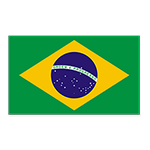Arthur Antunes Coimbra - A Detailed Overview
Early Life
Arthur Antunes Coimbra, known as Zico, was born on March 3, 1953, in Rio de Janeiro, Brazil. Raised in a middle-class family, he nurtured a passion for football during his childhood. He started his football journey at the age of 14 when he entered the youth academy of the Brazilian football club Flamengo in 1967.
Club Career
Zico began his senior club career with Flamengo in 1971. He became an influential figure at the club, leading them to numerous victories including the Campeonato Brasileiro Serie A in 1980, 1982, and 1983, the Copa Libertadores in 1981, and the Intercontinental Cup the same year. Zico is the all-time top scorer of Flamengo with 405 goals in 448 official matches. After his stellar stint with Flamengo, he moved to Italy in 1983 to play for Udinese. Having spent two seasons with Udinese, he returned to Flamengo in 1985 and stayed there until 1989. Towards the end of his career, he played for Kashima Antlers in Japan from 1991-1994.
International Career
Zico made his international debut for Brazil in 1976. Over the years, he became a key player for the Brazilian national team, participating in several World Cups including those in 1978, 1982, and 1986. Despite his exceptional skills and contributions, he was unable to help Brazil lift the World Cup trophy. Zico scored 66 goals in 88 matches for Brazil, marking him as the fifth highest goal scorer for his national team.
Style of Play
Known for his technique, creativity, and ability to score from both open play and set pieces, Zico was a complete attacking midfielder. He was an excellent dribbler and had a unique ability to provide accurate passes. His skill of scoring from free kicks was renowned worldwide. Zico is often considered one of the best players in football history and one of the best midfielders of his generation.
Coaching Career
Post his playing career, Zico took up coaching, having stints with several teams including Kashima Antlers, Japan's national team, Fenerbahçe, CSKA Moscow, Olympiacos, Iraq's national team and FC Goa. His highlight as a coach came while leading Japan's national team, whom he guided to the 2004 AFC Asian Cup and the 2006 FIFA World Cup.
Legacy and Achievements
Zico left an indelible impact on football with his incredible skills and performances. He was named the South American Footballer of the Year in 1977, 1981, and 1982. Moreover, he was included in FIFA's list of the 100 greatest living players in 2004. Zico is considered one of the greatest players not only in Brazil but worldwide. His influence extended to Japan, where as a player and coach, he significantly contributed to the development of football. Zico is often credited with popularizing football in Japan; the Japanese affectionately refer to him as 'the god of football'.
Personal Life
Zico married Sandra de Sá in 1979, and they have three children together. He is also the uncle of Brazilian footballer Rodrigo Antunes, which further blinks his life to the sport. Zico is deeply respected in his home country and worldwide for his contributions to football, and despite being retired, is often seen in football-related activities and charity work. His life integrated with football, powerful technique, and charisma make him an exemplary figure in the history of sport.
































